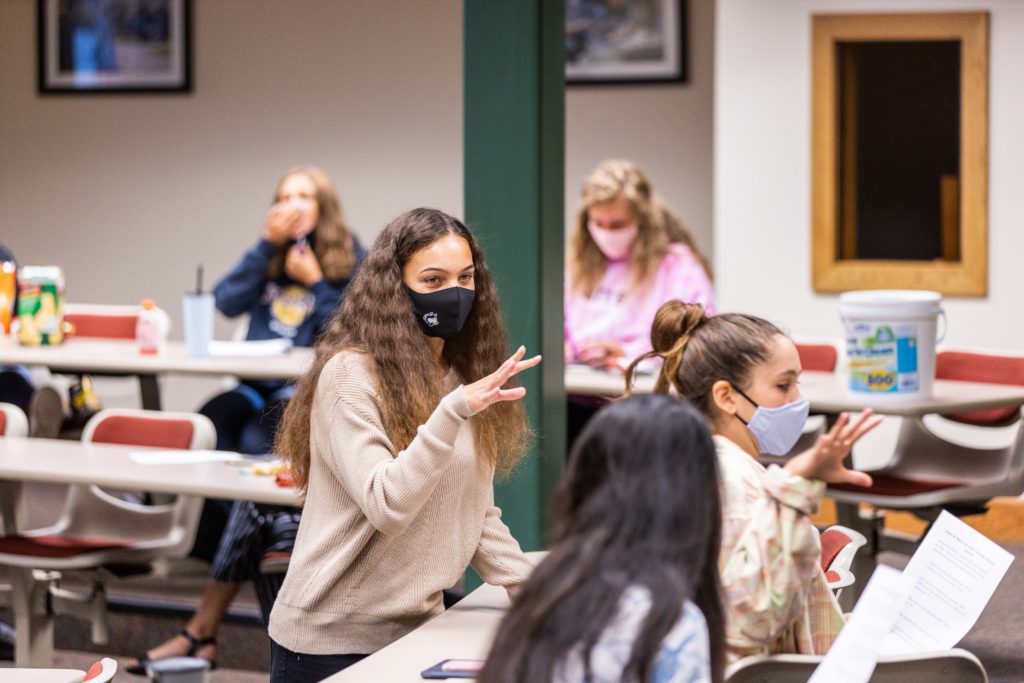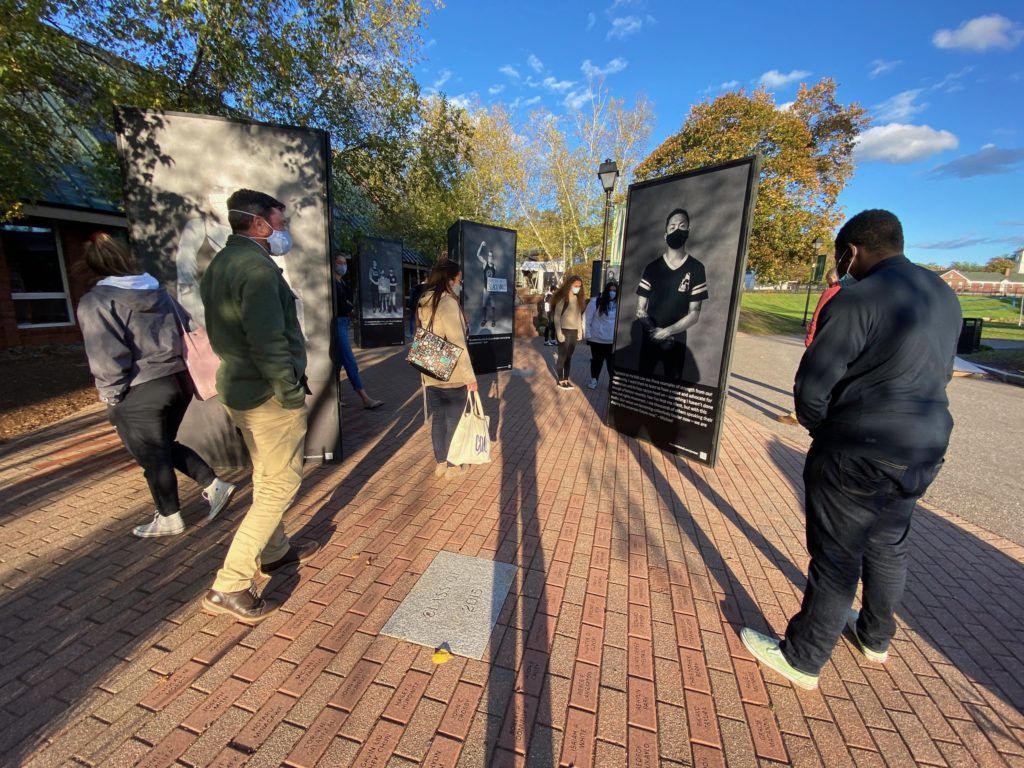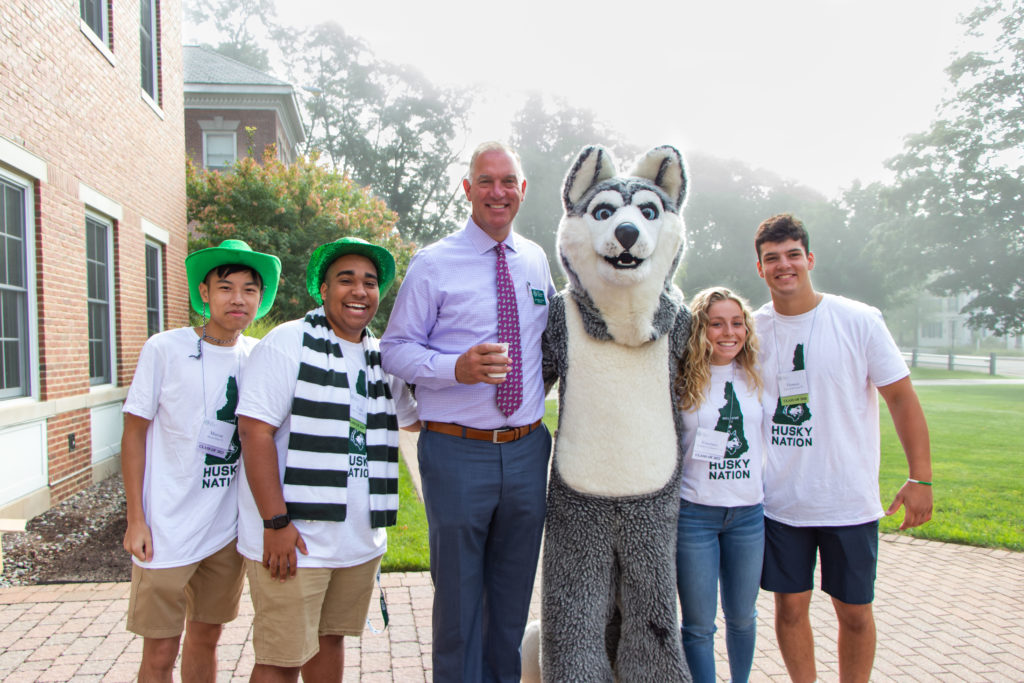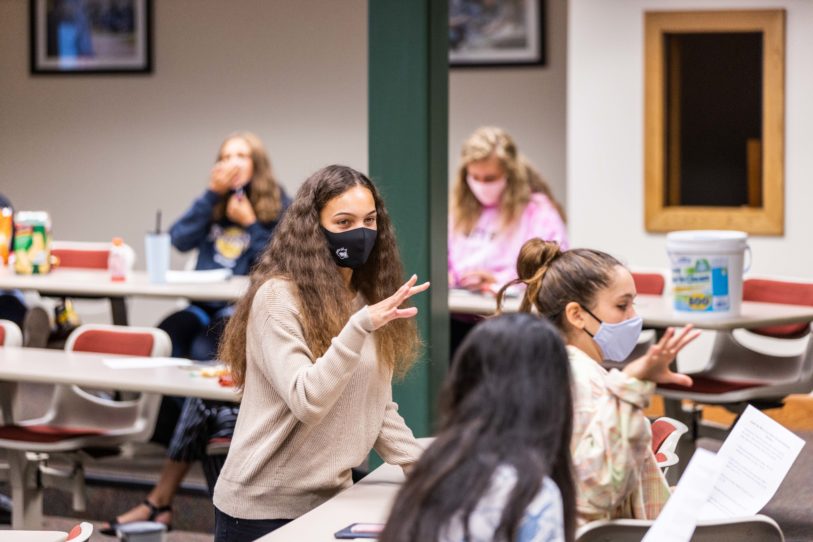Leadership takes on many forms here at New Hampton. We have formal leadership roles, where students are charged with cultivating inclusive environments through their roles as mentors, stewards of community guidelines, and supporters of fun. Whether leading, following, or somewhere in-between, we foster an environment where every student’s voice matters. To better understand our approach to student leadership we asked Autumn ’21 and Head of School Joe Williams P’22 to share their perspectives.
Meet Autumn ’21

How has New Hampton enabled you to take on leadership roles?
New Hampton encourages me to be a prominent leader every day. When I presented the idea of co-teaching a class, Acknowledging Discrimination, I was encouraged every step of the way. Also, students are pushed to practice public speaking through announcements at school meetings. For example, I had the opportunity to work alongside Mr. Bicknell and Mrs. Blackey conducting research on Students of Color from 100 years ago. After weeks of research, I shared a presentation at school meeting that displayed our findings.

Can you explain your role in DEI work on campus?
Through teaching Acknowledging Discrimination, students were able to learn about racism, sexism, and discrimination. I believe that with this knowledge, students have a better understanding of the importance of diversity, equity, and inclusion. I also helped bring BLM movement art to campus. As a leader, I want to help others understand the movement so they can get involved. I think it’s also important to draw parallels between the past and present. Through presentations at various clubs and school meetings, I try and help students see how far we’ve come as a school, but also on a great scale as well. These reflections allow us to understand that there is much more work to be done in terms of diversity, equity, and inclusion.

How has New Hampton given students the opportunity to be leaders in conversations about diversity on campus?
Faculty and administrators encourage students to be leaders in conversations surrounding diversity on campus. For example, affinity groups like the diversity club, and the women’s affinity group are student-led. At New Hampton, you really feel that your voice matters. Personally, I believe that when students lead groups like these, it becomes something very powerful. Seeing students in these roles also encourages other students to be involved.
Editor’s note: Autumn ’21 was awarded a Certificate of Accomplishment from the Boston Committee of the Princeton Prize in Race Relations for her work advancing racial equity and fostering positive race relations within our community by the creation of the class, Acknowledging Discrimination.
The Princeton Prize in Race Relations (PPRR) recognizes and rewards high school students who, through their volunteer activities, have undertaken significant efforts to advance racial equity and understanding in their schools or communities.
Meet Head of School Joe Williams P’22
What do I see as the most unique leadership opportunity for New Hampton students?
The biggest opportunity that I see, and the sign of true leadership, is what our student leaders do behind the scenes to support our students and uphold our community guidelines. By being intimately involved in the lives of students, our leaders are aware of the common themes and critical issues on campus. Our leaders use this information to fuel student council discussions that then are relayed to the administration. It is through these connections that student leaders are able to help administrators best serve the student body. These are hard skills to develop, and there is no public recognition or awareness, but the personal reward is significant. It is in these moments when students understand the true art of leadership.

What training are student leaders provided on campus and what resources are made available for them?
In a typical year, our student leaders return to campus in August ahead of others for an in-depth training program. Through workshops and programming developed by the Student Life Office, they reflect on their personal leadership styles, discuss expectations, and review challenges they will undoubtedly face. We ask students to do a deep dive into the responsibilities for their respective position with the adult(s) they will work with. In doing this, they gain clarity of the written responsibilities, but also an understanding of the unwritten responsibilities of their role. We also spend time talking about the cycle of the year and maintaining their energy beyond the natural enthusiasm that comes with the opening of school.
I like to meet with our co-presidents after they are elected and then again in the summer. In these meetings, I empower them to develop “their thing”, whether it is an approach to school meetings, a desired community event, or some other defining style. It is easy to replicate what they have seen before them, but I want their presidency to be a time for them to share their authentic selves and to guide us from the heart.
Different cohorts will meet in groups throughout the year for “refreshers” to their summer training. One of the things that is special about our students is that they want to contribute and grow. When they approach their roles with this attitude good things happen.
How do I see my personal leadership style reflected in our community?
I view myself as a servant leader. I try to facilitate a better experience for others by building trust, providing support, developing programs, and providing needed tools. This requires an ability to listen, understanding different viewpoints, and finding a common path forward in a collaborative fashion. We may not always agree on what that path forward is or the decision that needs to be made. Regardless though, there should always be an understanding of “why” and an opportunity to provide input or feedback. I certainly see this playing out in our community, and not just with student leaders. We are talking with more frequency about issues of greater importance, things like social justice, mental health, and inclusivity which shape the culture of our community. Don’t get me wrong, food and fun are important, but when the dialogue is about learning and giving versus getting, special things happen.




